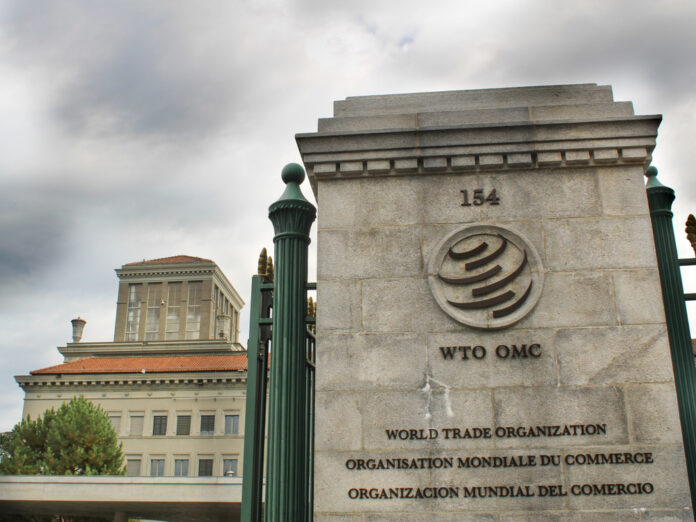The World Trade Organization (WTO) has published a new report providing insights on how countries use the different international agreements and conventions to regulate the export of controlled and sensitive goods.
The trading of certain products can entail risks, necessitating the need for measures such as export licenses and restrictions in certain circumstances to manage the risks, according to the report.
Research published September 15 explores for the first time how these export-related frameworks developed beyond the WTO operate in practice and how they are linked to the multilateral trading system.
These agreements aim to ensure environmental protection, hazardous waste management, weapons control, and the combat of illegal drugs trade, according to the new publication entitled International Export Regulations and Controls.
“While these international agreements have traditionally focused on regulations governing the importation of controlled and sensitive goods, an increasing number include rules governing exports,” the paper noted.
Examples of such agreements include the Convention on International Trade in Endangered Species of Wild Fauna and Flora; the Basel, Rotterdam and Stockholm Conventions on hazardous chemicals and wastes; and the United Nations International Drugs Control Conventions.
While some of these measures might be considered quantitative restrictions or QRs, which are generally prohibited by WTO rules, members are permitted to apply them in a limited number of situations.
In terms of products affected by export-related measures, chemical products are the most frequently affected, followed by optical and measuring instruments, and different types of machinery and pharmaceuticals, the report noted.
The WTO publication is meant to serve as guide for policymakers, government officials, academia and stakeholders with an interest in the trade of controlled goods, said Suja Rishikesh Mavroidis, director of the WTO’s Market Access Division.
“By fostering a better understanding of the existing international agreements regulating exports and how they link to the multilateral trading system, the WTO can help to strengthen global cooperation, promote transparency and perhaps even inspire future agreements seeking to strike a balance between advancing international trade and protecting the global community against potential risks,” she said.







